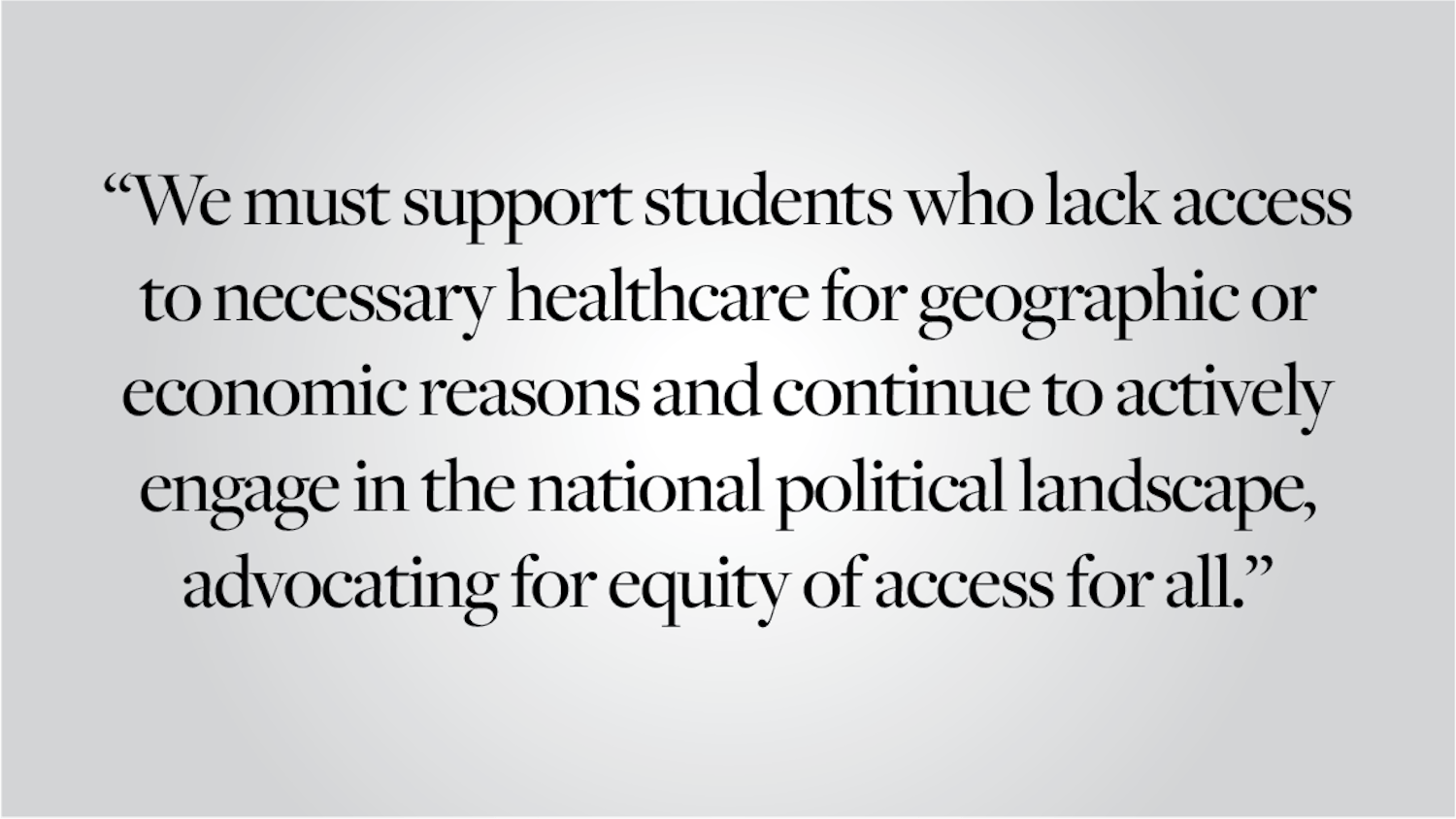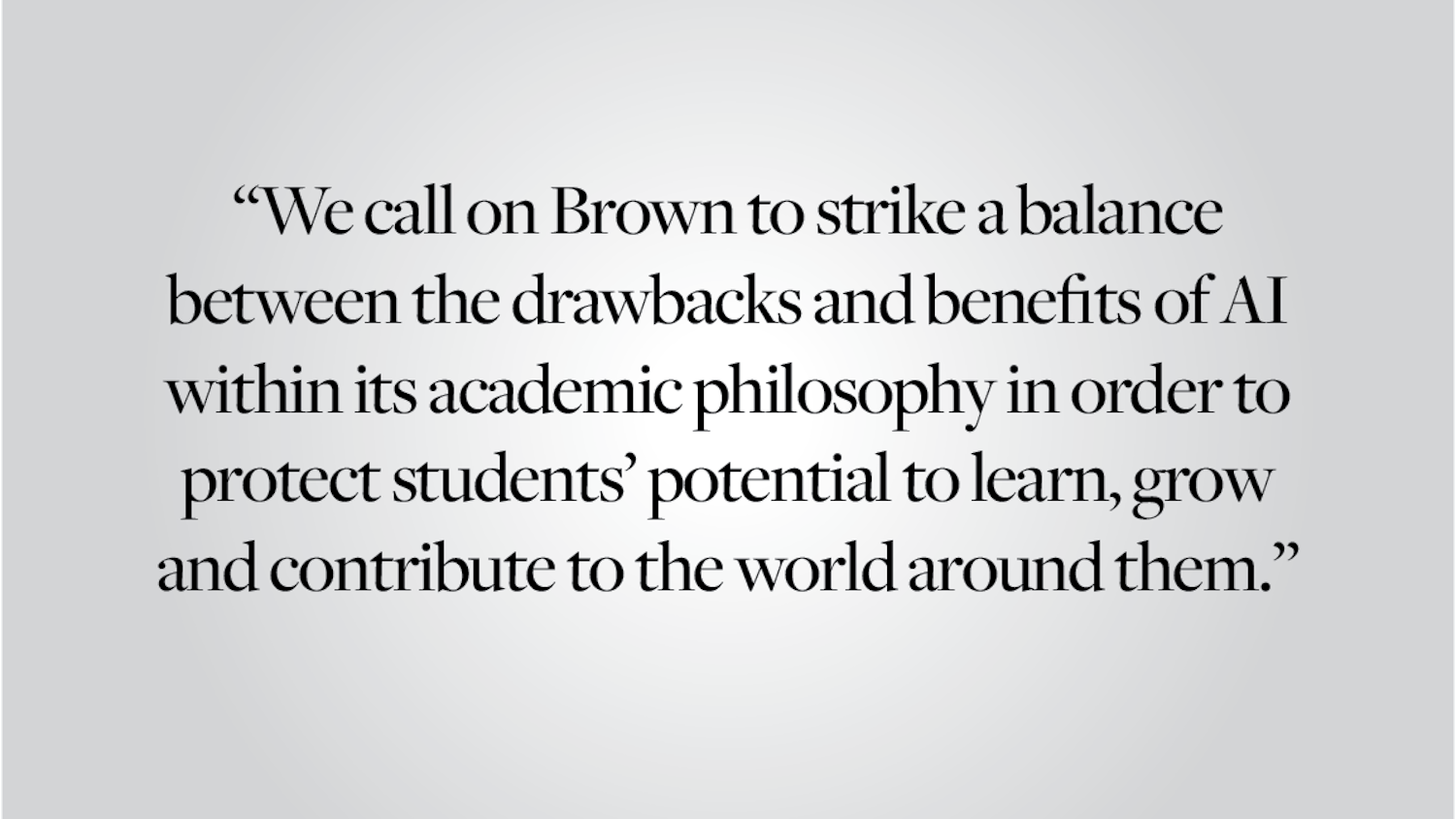Memories of the specifics of Ruth Simmons’ presidency are quickly fading, replaced by a larger-than-life mystique. At this point, Simmons is perhaps best known for her prodigious fundraising and sky-high approval ratings, but few may remember that she arrived on campus after a controversial free speech incident — one relevant to the current campus discussion. In March 2001, conservative activist David Horowitz paid for a full-page advertisement in The Herald arguing against slave reparations, an incident that provoked wide-spread outrage on campus. Protesting students stole all of the copies of that Friday’s paper, only to have them reprinted the next day and protected by campus police.
On Sept. 4, 2001, just a week before the 9/11 terrorist attacks, Simmons gave her first Convocation address and directly addressed the controversy. We would all do well to revisit her thoughtful, passionate and personal defense of free speech. We do not condone Kelly’s policies — just as former editors certainly did not condone Horowitz’s hateful words. But we maintain it is dangerous to silence them.
Simmons told a divided campus that “the protection of speech that is offensive or insulting to us is one of the most difficult things that we do. But it is this same freedom that protects us when we are in turn powerless.” Freedom of speech, by definition, is absolute. When limits are put on what we can say — particularly in a university setting — the rights of every student have been infringed. “I won’t ask you to embrace someone who offends your humanity through the exercise of free speech,” Simmons assured students. But she maintained that she “would ask you to understand that the price of your own freedom is permitting the expression of such opinions.”
At this point of the conversation, we would do well to examine the definition of “safe space,” a term freely used on campus but poorly defined. All students at Brown who wish to have their voices heard should be safe, and feel safe, but they may not necessarily be comfortable. At Wednesday evening’s campus forum, Amara Berry ’16 told the audience, “We need to be listening to each other in ways that make us uncomfortable.” There have been too few uncomfortable conversations this week.
Simmons understood the importance of feeling discomfort in intellectual circles in order to preserve free expression and, just as importantly, to effect substantive change. Perhaps the most powerful moment in Simmons’ speech came when she spoke of her own confrontation with a classmate whose comments she found racist. “I have regretted for 30 years that I did not engage this woman’s assertions instead of dismissing her as racist,” Simmons said. “And I have tried to set that mistake right for all of my career. Those moments will come to you in this place. You can look away, you can turn away when they do, or you can engage them and not look back 30 years later wishing that you had the opportunity to do it.”
In the past few days, we have seen the advancement of the idea that the administrative response was somehow particular to Paxson, an idea Simmons’ words prove false. We hope students take Simmons’ lessons into account and push for substantive and sometimes uncomfortable discussion as we grapple with the events of the past week. Universities must remain havens for such boundary-pushing debate, if only because they may not be possible elsewhere. A careful review of Simmons’ first speech would indicate that she, almost certainly, would have defended this concept — that “knowledge is rooted in freedom of speech and inquiry.”
Editorials are written by The Herald’s editorial page board: its editor, Rachel Occhiogrosso, and its members, Daniel Jeon, Hannah Loewentheil and Thomas Nath. Send comments to editorials@browndailyherald.com.
ADVERTISEMENT




